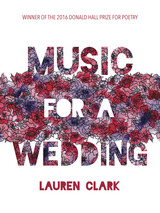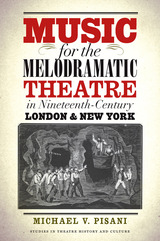3 books about Music for

Mahler's Symphonic World
Music for the Age of Uncertainty
Karol Berger
University of Chicago Press
A new analysis of Mahler’s symphonies, placing each within the context of his musical way of being in and experiencing the world.
Between 1888 and 1909 Gustav Mahler completed nine symphonies; the tenth was left incomplete at his death in 1911. Mahler’s Symphonic World makes a radical claim: that over his lifetime, the composer pursued a single vision, a single ideal symphony, striving to capture in his music a philosophical outlook on human existence. Writing at the turn of the twentieth century, Mahler found himself in a spiritual situation in which all trust in firm foundations had evaporated. In Karol Berger’s analysis, each of Mahler’s symphonies reflects his preoccupation with human suffering and transience and his search for sources of possible consolation. Through detailed analysis of individual symphonies, Berger traces how the same images and plots appear in different works and how the borderlines between symphonies can become porous. Mahler’s Symphonic World uncovers the single ideal symphony that Berger asserts the composer was pursuing all his life, locates Mahler’s music within the matrix of intellectual currents that defined his epoch, and offers a revelatory picture of his musical way of being in the world.
Between 1888 and 1909 Gustav Mahler completed nine symphonies; the tenth was left incomplete at his death in 1911. Mahler’s Symphonic World makes a radical claim: that over his lifetime, the composer pursued a single vision, a single ideal symphony, striving to capture in his music a philosophical outlook on human existence. Writing at the turn of the twentieth century, Mahler found himself in a spiritual situation in which all trust in firm foundations had evaporated. In Karol Berger’s analysis, each of Mahler’s symphonies reflects his preoccupation with human suffering and transience and his search for sources of possible consolation. Through detailed analysis of individual symphonies, Berger traces how the same images and plots appear in different works and how the borderlines between symphonies can become porous. Mahler’s Symphonic World uncovers the single ideal symphony that Berger asserts the composer was pursuing all his life, locates Mahler’s music within the matrix of intellectual currents that defined his epoch, and offers a revelatory picture of his musical way of being in the world.
[more]

Music for a Wedding
Lauren Clark
University of Pittsburgh Press, 2017
Winner of the 2016 Donald Hall Prize in Poetry
Lauren Clark’s poems move lucidly, depicting beautiful struggles of distrust, dream, grief, and intimacy. They show such conflicts through entrancing narrative drive and song-like abandon. In their unpredictable, unforgettable language, they make pain a tonic for pleasure, sorrow ground for revelation. This is a book that is celebratory, gentle, and queer.
Lauren Clark’s poems move lucidly, depicting beautiful struggles of distrust, dream, grief, and intimacy. They show such conflicts through entrancing narrative drive and song-like abandon. In their unpredictable, unforgettable language, they make pain a tonic for pleasure, sorrow ground for revelation. This is a book that is celebratory, gentle, and queer.
[more]

Music for the Melodramatic Theatre in Nineteenth-Century London and New York
Michael V. Pisani
University of Iowa Press, 2014
Throughout the nineteenth century, people heard more music in the theatre—accompanying popular dramas such as Frankenstein, Oliver Twist, Uncle Tom’s Cabin, Lady Audley’s Secret, The Corsican Brothers, The Three Musketeers, as well as historical romances by Shakespeare and Schiller—than they did in almost any other area of their lives. But unlike film music, theatrical music has received very little attention from scholars and so it has been largely lost to us. In this groundbreaking study, Michael V. Pisani goes in search of these abandoned sounds.
Mining old manuscripts and newspapers, he finds that starting in the 1790s, theatrical managers in Britain and the United States began to rely on music to play an interpretive role in melodramatic productions. During the nineteenth century, instrumental music—in addition to song—was a common feature in the production of stage plays.
The music played by instrumental ensembles not only enlivened performances but also served other important functions. Many actors and actresses found that accompanimental music helped them sustain the emotional pitch of a monologue or dialogue sequence. Music also helped audiences to identify the motivations of characters. Playwrights used music to hold together the hybrid elements of melodrama, heighten the build toward sensation, and dignify the tragic pathos of villains and other characters. Music also aided manager-directors by providing cues for lighting and other stage effects. Moreover, in a century of seismic social and economic changes, music could provide a moral compass in an uncertain moral universe.
Featuring dozens of musical examples and images of the old theatres, Music for the Melodramatic Theatre charts the progress of the genre from its earliest use in the eighteenth century to the elaborate stage productions of the very early twentieth century.
Mining old manuscripts and newspapers, he finds that starting in the 1790s, theatrical managers in Britain and the United States began to rely on music to play an interpretive role in melodramatic productions. During the nineteenth century, instrumental music—in addition to song—was a common feature in the production of stage plays.
The music played by instrumental ensembles not only enlivened performances but also served other important functions. Many actors and actresses found that accompanimental music helped them sustain the emotional pitch of a monologue or dialogue sequence. Music also helped audiences to identify the motivations of characters. Playwrights used music to hold together the hybrid elements of melodrama, heighten the build toward sensation, and dignify the tragic pathos of villains and other characters. Music also aided manager-directors by providing cues for lighting and other stage effects. Moreover, in a century of seismic social and economic changes, music could provide a moral compass in an uncertain moral universe.
Featuring dozens of musical examples and images of the old theatres, Music for the Melodramatic Theatre charts the progress of the genre from its earliest use in the eighteenth century to the elaborate stage productions of the very early twentieth century.
[more]
READERS
Browse our collection.
PUBLISHERS
See BiblioVault's publisher services.
STUDENT SERVICES
Files for college accessibility offices.
UChicago Accessibility Resources
home | accessibility | search | about | contact us
BiblioVault ® 2001 - 2024
The University of Chicago Press









